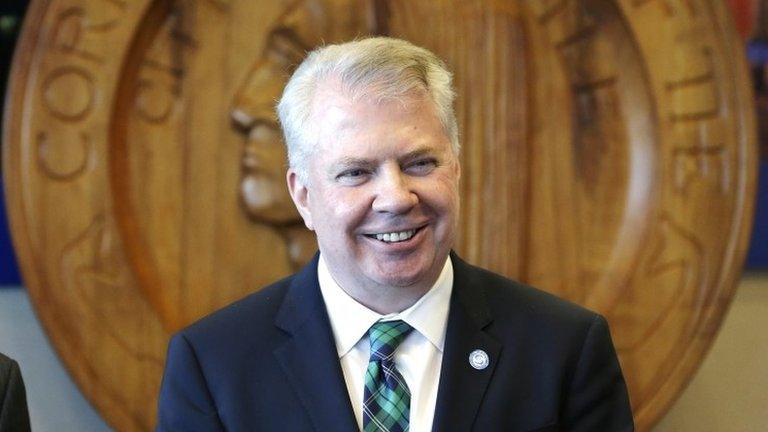Seattle's great minimum wage experiment
- Published
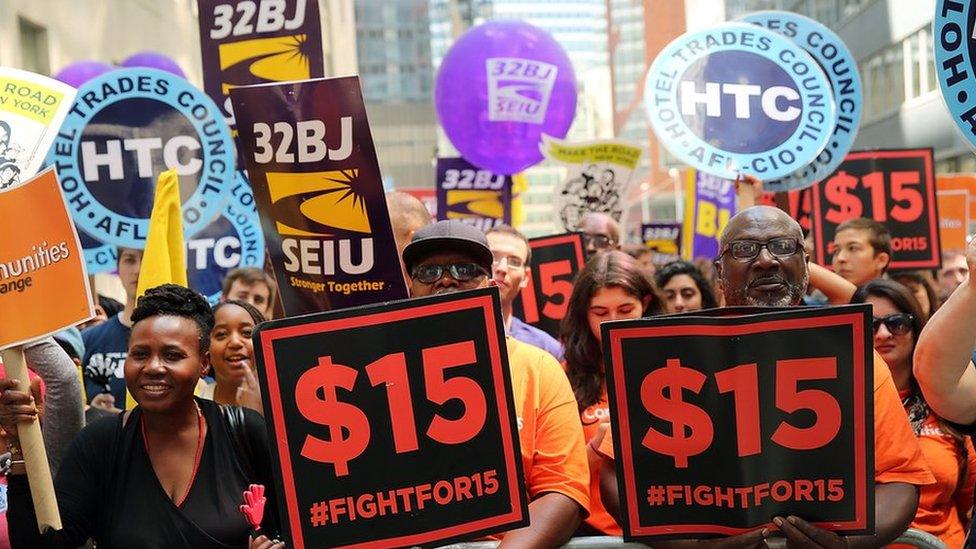
Fight for 15 campaigners have succeeded in getting $15 minimum wages in several US cities
At a union-organised event in Seattle former McDonald's worker Martina Phelps recounts how she walked out three years ago in protest at how little she and her colleagues were getting paid. It was the first time she had ever taken part in a strike.
"It was the experience of a lifetime," she says, as the audience whoops and cheers. "After seeing my co-workers literally struggling and not having enough money to take care of their children, it was set in my mind that I can do something about this."
The strike was part of the Fight for 15 campaign - a nationwide movement to raise the minimum wage to $15 (£10) an hour.
'Wage stagnation'
It began with fast-food workers in New York, but it was on America's west coast that it saw early success - two years ago Seattle became the first major city in the United States to pass a $15 minimum wage into law.
It will come in gradually. This year larger companies started paying employees $13 an hour. It will go up to $15 next year. By 2021, the new $15 minimum will be rolled out to everyone.
Since then Fight for 15 has gained momentum. This year both California and New York approved state laws bringing in a $15 an hour minimum wage, along with more than a dozen other cities and counties.
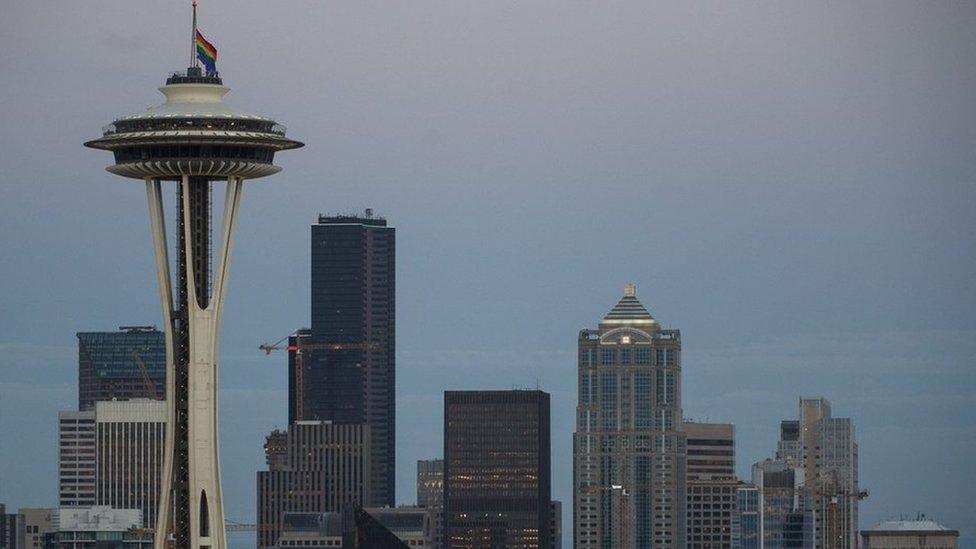
Seattle became the first major US city to bring in a $15 minimum wage in 2014
Listen to Edwin Lane's report on Seattle's $15 minimum wage on Business Daily, BBC World Service
"We've had 40 years of wage stagnation in the US at a moment when the county has gotten richer and richer," says union leader David Rolf, who helped bring in the Seattle law.
"Half of Americans now make less than $17 an hour. Forty-three per cent make less than $15 an hour. A quarter make less than $10 an hour. The reality is the American dream is at its moment of greatest risk."
'Supply and demand'
But not everyone thinks paying people more is a good idea. The current federal minimum wage is just $7.25 an hour and some economists warn that raising it to $15 will more than double the cost of labour and discourage businesses from hiring people altogether.
"It all goes back to supply and demand," says Jacob Vigdor, professor of public policy and governance at the University of Washington in Seattle.
He has been tasked by the city to monitor the economic impact of the new minimum wage as it is phased in.
"So far as we can tell right now, Seattle is still open for business and we haven't seen a large increase in unemployment," he says. "But that's not to say everything will be just fine forever."
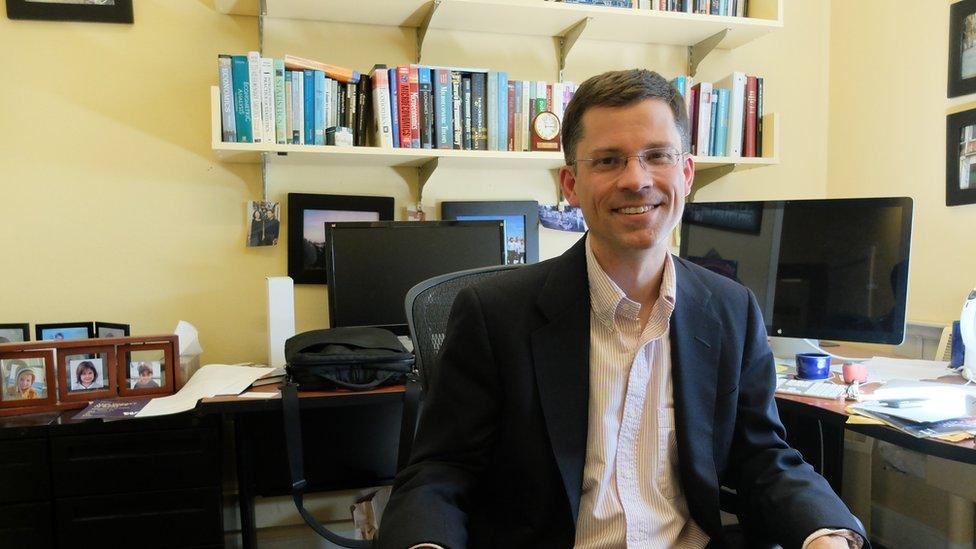
He says low-paid workers themselves are concerned about the prospect of prices rising as a result of higher wages, in a city they already find expensive.
Businesses have also told him they want more experienced staff for the higher wages they are now paying.
"Younger workers who are just starting out in the labour force may find it more difficult to find work," he says.
'Blend jobs'
Restaurateur and chef Jason Wilson is among the small business owners with reservations about the new minimum wage.
He's already raised the prices on his menu and changed the way staff are paid - getting rid of tipping in favour of a standard service charge. He says he will also expect more of his staff.
"We're going to have to look at everyone's job and what they do and start to blur the lines of responsibility, blend those jobs together and get higher levels of efficiency," he says.
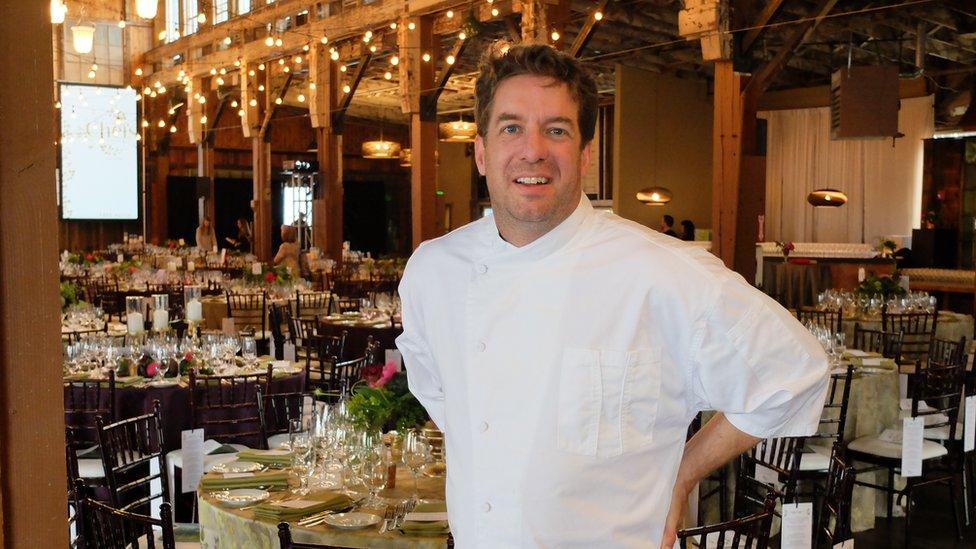
Jason Wilson, owner of the Miller's Guild restaurant in Seattle, has concerns about the new minimum wage
But he's also sympathetic to the plight of workers stuck in low-paid jobs for long periods.
"I grew up earning minimum wage as a kid. I worked extra hours at a bar for tips, and that would incentivise me to work harder and find greater opportunities. That's what a minimum wage job is meant for. It's not meant to support a family."
'No compelling evidence'
David Neumark is an economics professor at the University of California who has studied the impact of past minimum wage increases in the US.
His main criticism is that higher minimum wages do very little to help the poorest in society, because many minimum wage workers aren't actually poor, but are using low-wage jobs to access the labour market.
"In the US data, you really can't find any compelling evidence that the minimum wage reduces poverty, and the reason is a lot of minimum wage workers are not in poor families," he says.
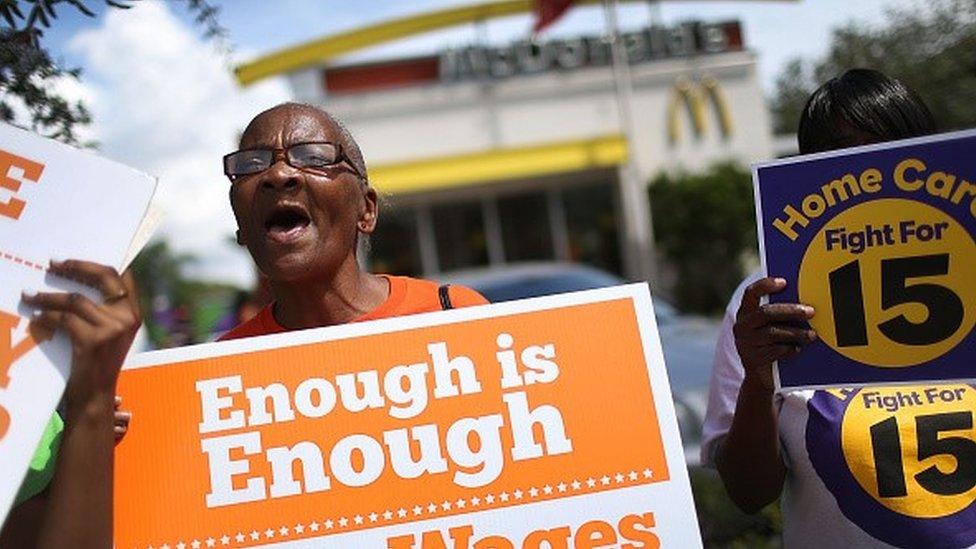
One economics expert says there is no proof that the minimum wage reduces poverty
He argues that a much more effective action would be to reduce income inequality by simply taxing the rich more and redistributing to the poor.
"A politician can legislate a higher minimum wage and they don't have to look at their budget or raise anyone's taxes. A much more effective tool would be to raise taxes, but in the US it's virtually impossible to talk about raising taxes."
Back in Seattle union leader David Rolf says the city's implementation of the $15 minimum wage remains an important example to the rest of the country.
When the first increases came in a year ago "the sky did not fall in", he says.
"That really captured the imagination of the public in this city."
- Published31 March 2016
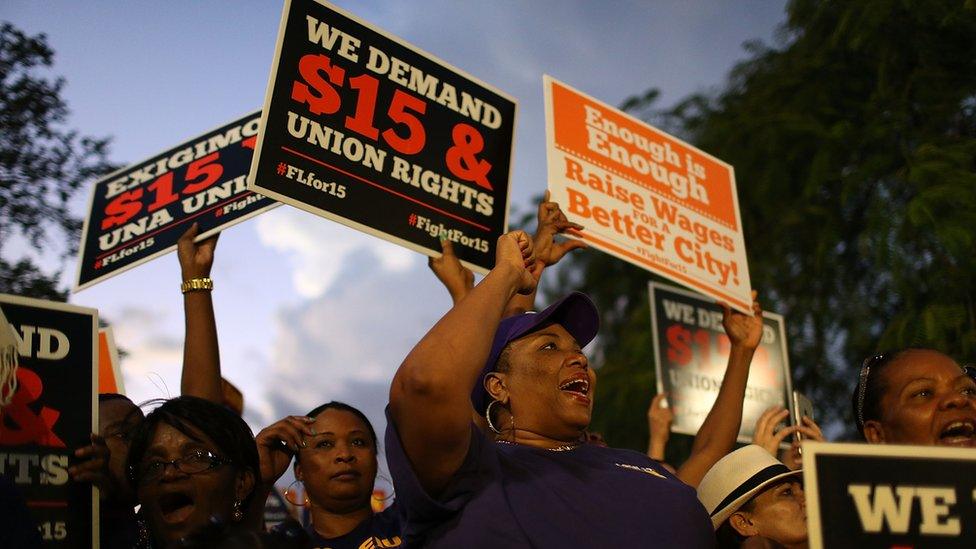
- Published23 July 2015
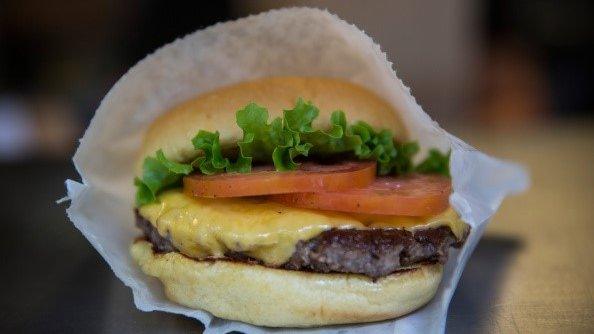
- Published19 May 2015
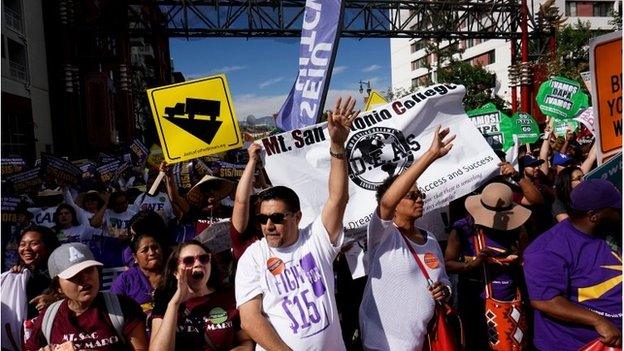
- Published6 June 2014
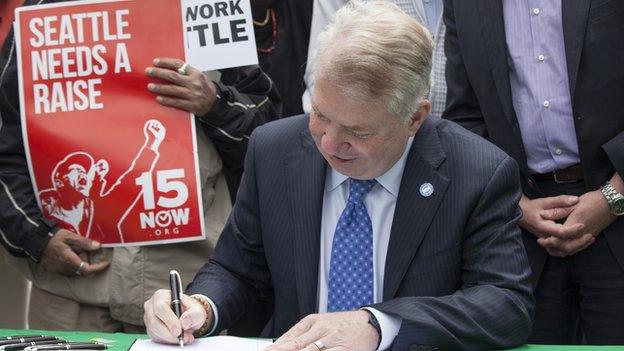
- Published3 June 2014
